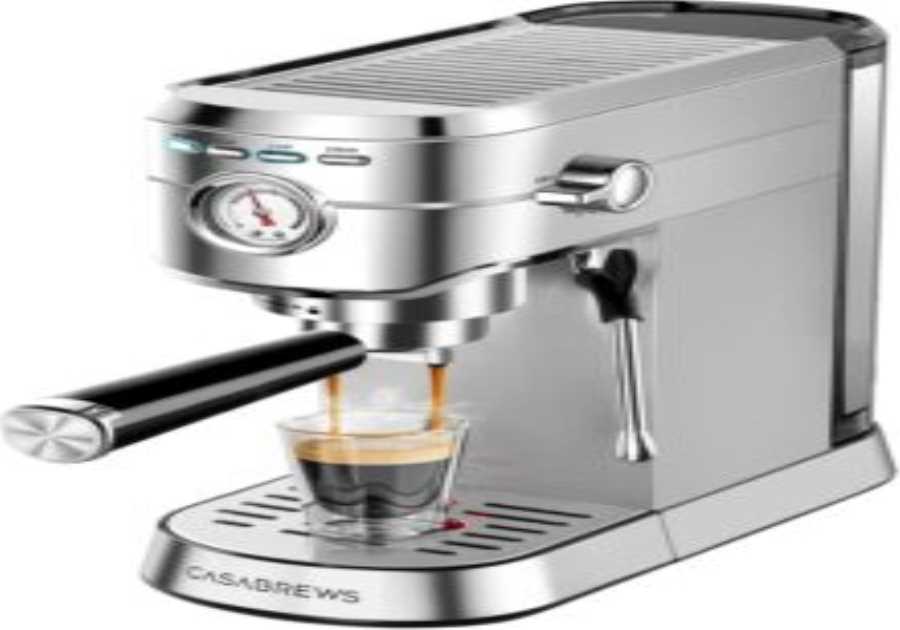Starting a career in roasting can often be a daunting task for many coffee professionals. The skills and experience required to roast high-quality coffee take years to learn and finetune, which can deter some people from working in a roastery.
There are, however, numerous different roles in the industry that can prepare a coffee professional for a career in roasting. With the proper knowledge and dedication, roasting can be a rewarding and unique opportunity to hone skills even further.
To find out more, I spoke to Gregory Koifman, CEO and founder of Ethica Coffee Roasters, and Muneera Alafaliq, HR Specialist at Bunista Roastery.
You may also like our article on how micro roasters can grow sustainably.
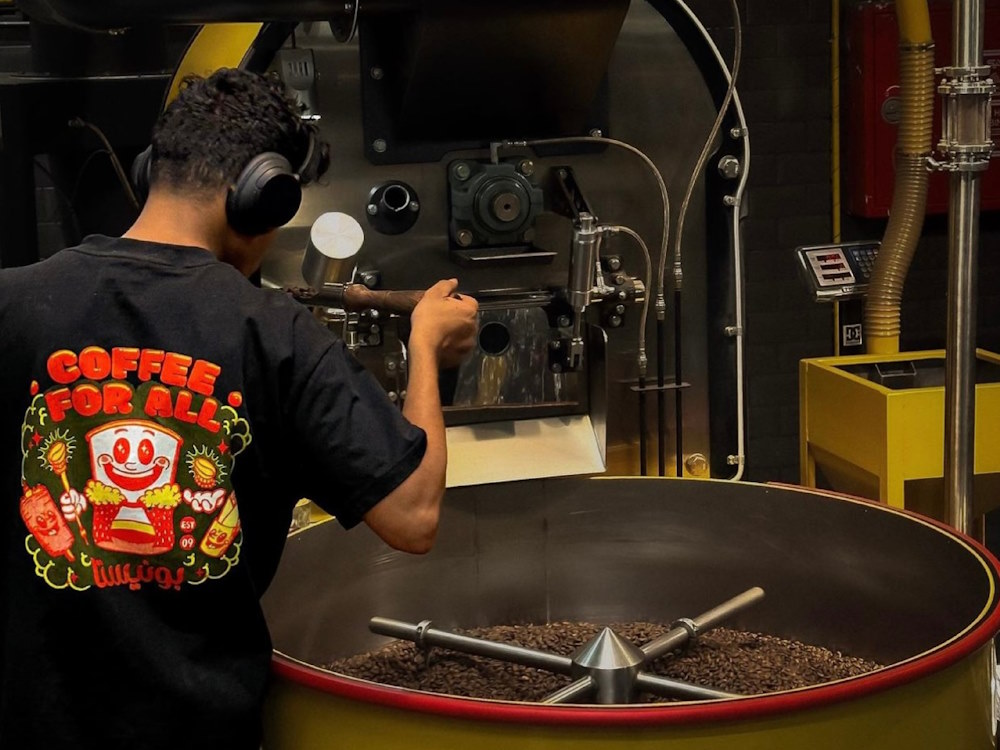
Common job roles in a roastery
Before we talk about how to start working in roasting, it’s crucial to understand the various job roles involved in a roastery. Ultimately, your starting position will depend on your skill level and previous experience.
A “director of coffee” is often at the helm of most roasteries, as Gregory Koifman, CEO and founder of Ethica Coffee Roasters in Toronto, Canada, explains: “The director of coffee is responsible for all coffee products and beverages and, of course, the company’s quality standards.”
Meanwhile, a head roaster works closely with the director of coffee to set roasting schedules, develop roast profiles and blends, and oversee the production team. Quality control specialists then work alongside head roasters to carry out cuppings to maintain high standards.
A production manager will often oversee roastery operations, which includes budgeting, finances, and staff management. Production roasters carry out and monitor the roasting process by following guidelines and procedures set by the head roaster or director of coffee.
“This role requires solid foundational knowledge of coffee roasting and production safety protocols,” Gregory says.
To support production roasters, assistant roasters will help with various tasks, such as packaging, labeling, and inventory management.
“At Ethica, this position is usually the first step to becoming a coffee roaster,” Gregory adds.
Another common role is a green coffee buyer, who sources green coffee and manages wholesale accounts.
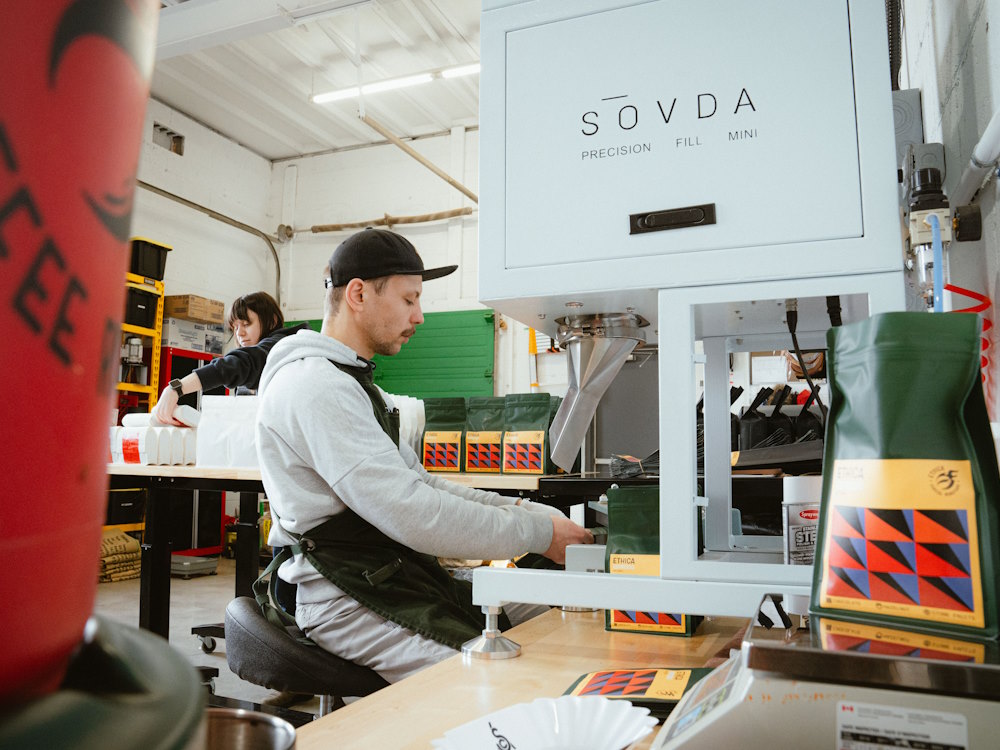
When is roasting a natural career progression?
Transitioning into roasting can be a logical career path for those who are passionate about specialty coffee. But many begin their roasting journey once they gain more experience in other roles.
Muneera Alafaliq is a HR Specialist at Bunista Roastery in Al Khobar, Saudi Arabia.
“Baristas, coffee shop managers, or even green coffee buyers can transition into roasting roles because they already have a deep understanding of flavour profiles, brewing techniques, and consumer preferences,” Muneera says.
It’s common for head baristas or coffee shop managers who are looking to apply their coffee skills even further to express interest in roasting. Similarly, home roasters who feel they have perfected their craft may also want to start their own roasting business or join an established roastery.
“Experience in food production or manufacturing environments, where precision and consistency are paramount, is also valuable,” Muneera adds.
Regardless of your background in specialty coffee, industry-specific job boards like PDG Jobs are excellent starting points for finding roasting jobs. PDG Jobs features many roastery positions – such as director of coffee, production manager, and green buyer – as well as other roles across the sector.
Moreover, PDG Jobs regularly updates its coffee job listings, allowing aspiring roasters around the world to stay informed about new opportunities.
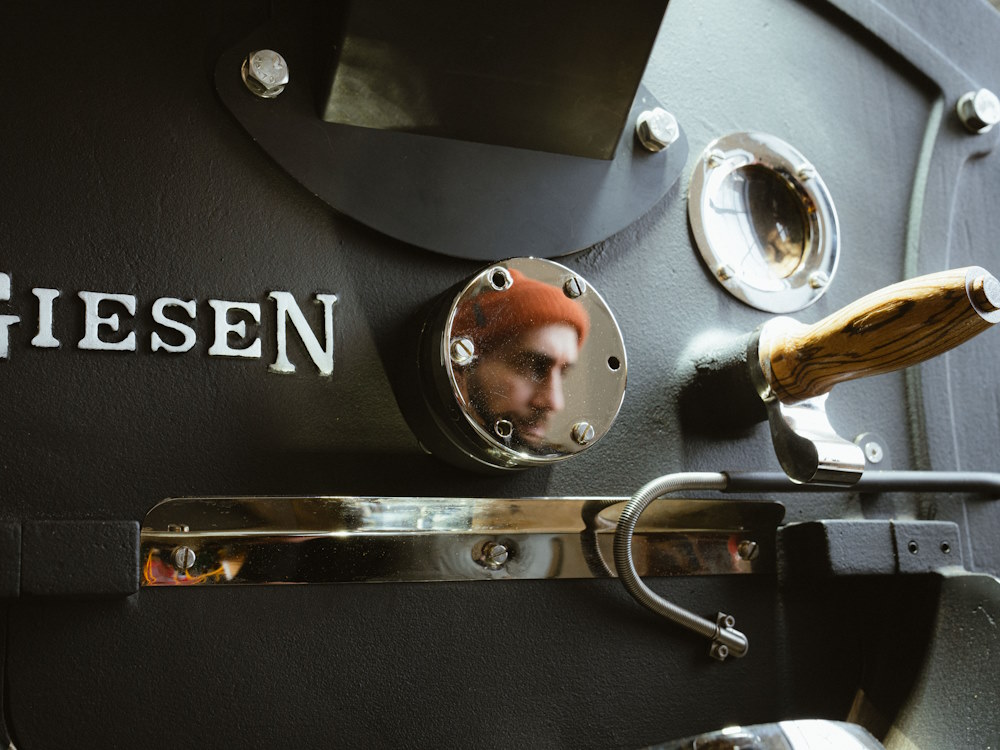
What to know before working in roasting
Before searching for coffee roasting jobs, there are a few key things to be aware of so that you’re better prepared for success.
First and foremost, starting a career with an established coffee roaster is very different from establishing your own roastery. If you plan to start your own business, it’s crucial to have the right skills, equipment, and facilities beforehand.
“Before diving into roasting, individuals should familiarise themselves with different types of machines, understand the science behind roasting, and develop their palate to discern subtle flavour differences in coffee beans,” Muneera says.
Prospective roasters will also need to decide whether to open their own facility or use a co-roasting space. The latter can be a cost-effective way to get started without significant upfront investment, whereas starting a roastery from scratch is much more cost-intensive.
Some important pieces of equipment needed to open a roastery include:
- Production roaster
- Sample roaster
- Destoners
- Filling and packaging equipment
- Other tools (such as scales, grinders, and roasting software)
Additionally, it’s important to consider the costs of running the facility itself, including permits and ventilation, as well as hiring staff and delivery drivers.
The type of roastery you want to work for
If your goal is to land a job at an established roastery, consider the type of business you want to work for. Roasteries can vary widely in size, branding, and values, so finding one that aligns with your coffee career goals is crucial.
Some coffee professionals may prefer to work at a smaller roastery that maintains close relationships with producers and focuses on micro lots, whereas others may find more success working for a larger business that works with wholesale clients.
For baristas, building on previous experience can be a useful gateway into roasting, so working for roasteries that operate their own cafés can be a great opportunity. Ultimately, your choice depends on the environment you want to work in and your long-term career aspirations.
Understand what being a roaster involves
A career in coffee roasting isn’t always for everyone. Many tasks – like packing, labelling, or even roasting itself – can be repetitive, and therefore require patience and even a particular personality type.
“You need to have a strong work ethic, attention to detail, and the ability to work in a fast-paced environment, as roasting requires precision and consistency,” Muneera explains.
Working in a roastery isn’t always “glamorous” and often involves long hours and strenuous tasks, especially in a start-up business where roasting and quality control might only take up 15% of the weekly tasks.
However, with the increasing use of automation, roasters are able to spend less time monitoring machines and focus more on other aspects of the business, such as developing blends, building customer relationships, and experimenting with new roast profiles.
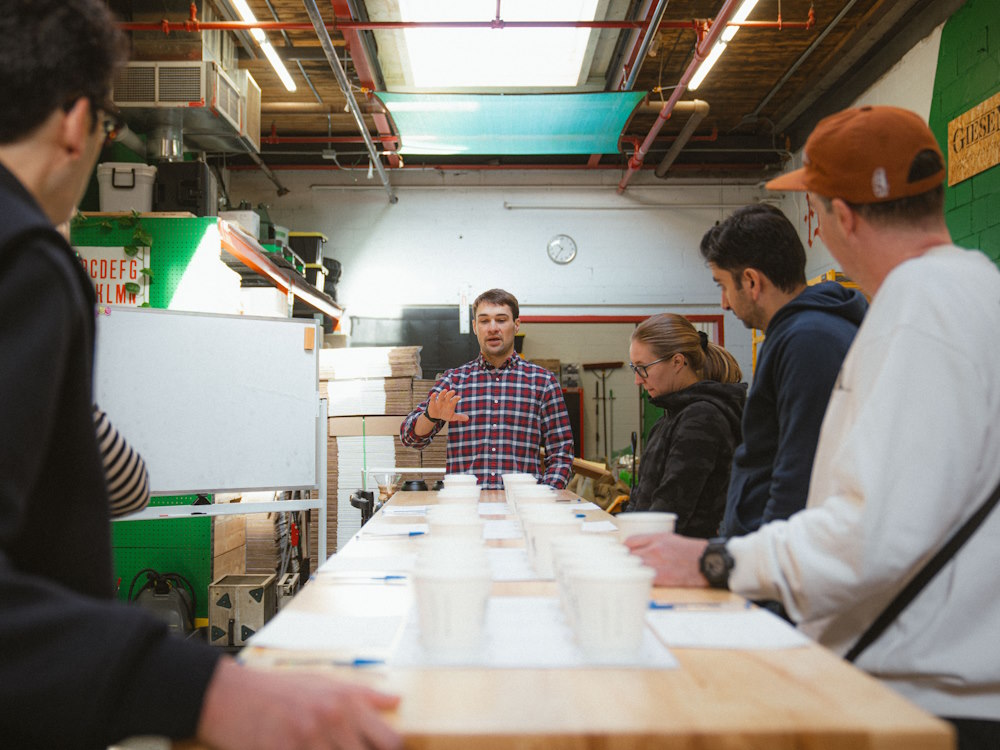
What skills and experience do aspiring roasters need?
Gregory says prospective roasters must be passionate about coffee and have a solid knowledge of different origins, varieties, and processing methods – and how these all impact the roasting process.
“Knowledge of coffee production and the science behind brewing and roasting are advantageous,” he adds.
Roasting experience – whether developed at home or in a professional environment – are, of course, also useful. However, the amount of required experience depends on the job roles you are applying for.
“For our master roaster and production manager roles, we’re looking for someone with extensive experience in roasting, a proven track record of managing production schedules and leading a team, and a deep passion for producing exceptional coffee,” Muneera says.
Soft skills, such as precision and attention to detail, are also important. Working independently and as part of a team is also key.
“There are a lot of opportunities in the coffee industry, and growth is unlimited,” Gregory says. “Anyone who sets the goal to start a career in roasting can achieve it – it’s only a matter of time and choosing the right company to work for.”
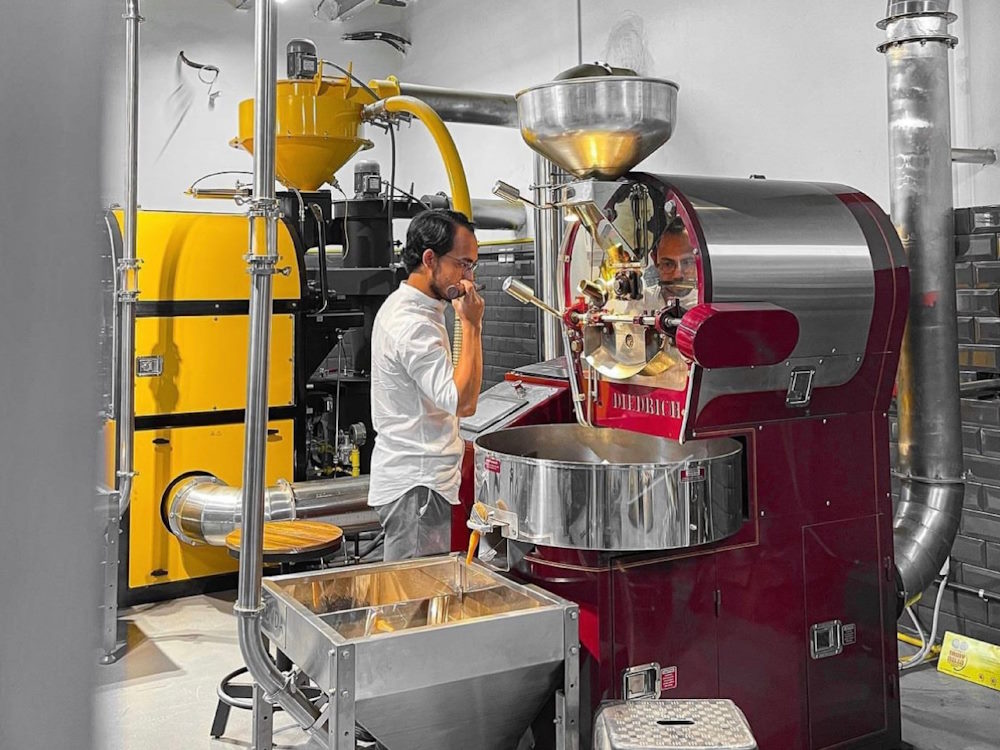
How to kickstart a roasting career
Starting a career in coffee roasting can be understandably challenging, so Muneera encourages those interested to immerse themselves in the specialty coffee industry as much as possible.
Networking is a key part of this. Aspiring roasters should attend as many trade shows and events as possible, or even take part in local and national roasting competitions.
“Attend cuppings, visit roasteries to observe the roasting process firsthand, and experiment with home roasting if possible,” Muneera adds.
Coffee professionals can also use platforms like PDG Jobs to find roasting opportunities, as well as other areas of the coffee sector, such as green coffee trading, marketing, or wholesale management.
Additionally, if the company you already work for roasts coffee, communicate your desire to learn more or even ask to shadow a roaster for more hands-on experience. Being comfortable to ask questions and dedicate enough time to learn new skills can help the transition into roasting be much more manageable.
“Don’t be afraid to ask questions and seek guidance from experienced roasters,” Muneera advises. “And most importantly, approach roasting with curiosity, patience, and a commitment to continuous learning.”
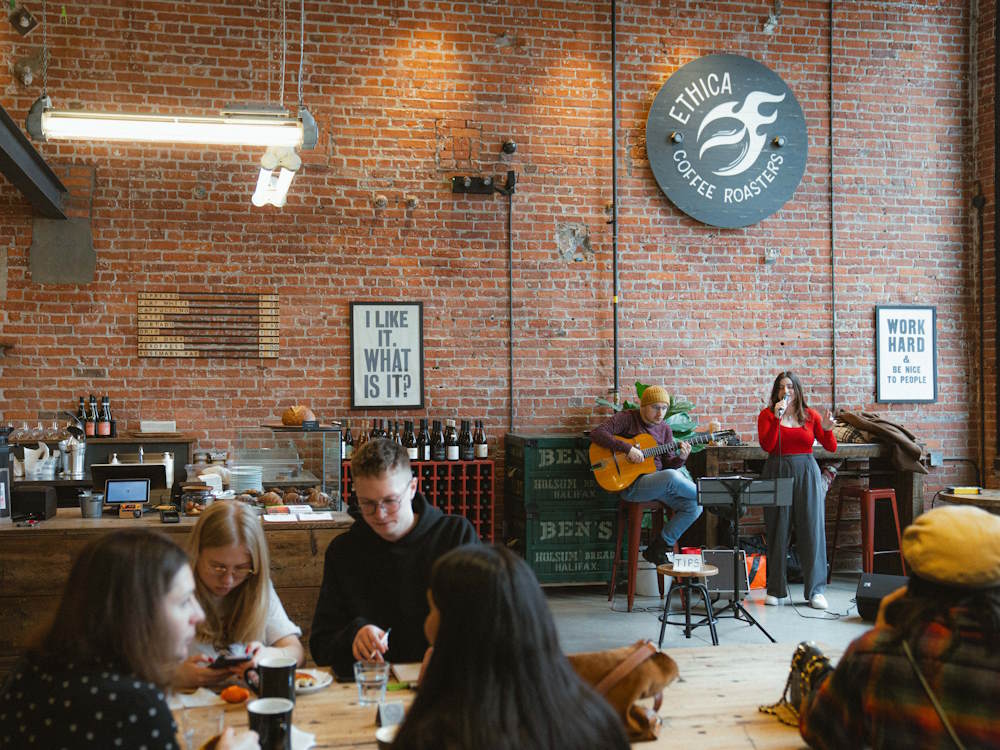
With in-depth knowledge, commitment, and an open mind, starting a career in roasting is possible for any dedicated coffee professional. Whether you have just started working in coffee or are looking to advance your career, roasting offers countless opportunities for growth and exploration.
Above all else, enjoying your coffee career path is most important. By investing your skills and experience, there is always more to learn about specialty coffee.
Enjoyed this? Then read our article on what roasters need to know when upgrading their facilities.
Photo credits: Bunista Roastery, Ethica Coffee Roasters
Perfect Daily Grind
Want to read more articles like this? Sign up for our newsletter!
The post How to start a career in coffee roasting appeared first on Perfect Daily Grind.
By: Zoe Stanley-ForemanTitle: How to start a career in coffee roasting
Sourced From: perfectdailygrind.com/2024/06/how-to-start-a-career-in-coffee-roasting/
Published Date: Mon, 10 Jun 2024 05:47:00 +0000
Always check our latest articles at...
https://coffeecutie.com/home-roasting

